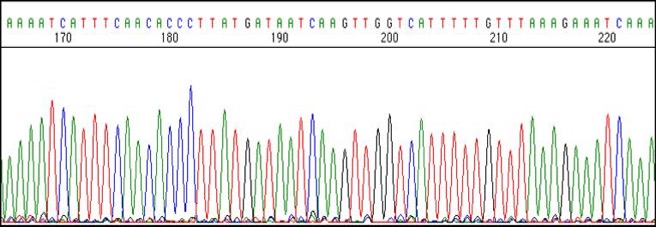Genetics
If you think of the set of the instructions that make you human as a book, that book would be called your genome. Like chapters in a book, genomes are made up of smaller parts called chromosomes. Chromosomes are the chapters in the book and gene would be a single sentence in the chapter. Thus there are lots of genes of different sizes within the 46 chromosomes in the human book. In the laboratory, the area that investigates chromosomes is called cytogenetics and the area that investigates genes is called molecular genetics. It is estimated that European populations have a 6%-8% lifetime prevalence of having a rare disease, the majority of which are ‘genetic’ i.e. to do with an alteration in the chromosomes or genes which can be passed from one generation to another in families. These are called inherited disorders and may be investigated in both adults and children.


Molecular Genetics
Molecular genetics is concerned with the identification of changes in the sentence in the chapter. These changes can be sometimes be harmful and are called mutations. Mutations cause a malfunction such that when the sentence tries to be read it cannot be or it does not make sense e.g.
Normal sentence: THE BIG RED CAT RAN OUT
Mutated Sentence: THE BIG RAD CAT RAN OUT or THE BIG RED. (RAN OUT is missing/deleted)
Mutations give rise to a disorder that can be passed on i.e. an inherited disorder. Molecular Genetics tests are performed to find mutations that might be causing a disease. Some well known examples include Cystic Fibrosis, Huntington’s Disease and Duchenne Muscular Dystrophy but there are hundreds of others including inherited cancers such as that caused by mutations in the BRCA gene. As molecular genetics is specialised and quite complex, a report will be given to the doctor which tells them what was found, what it means, what the risks are and any follow up that should be done. Because molecular genetics is a rapidly changing and developing field, the laboratories ensure they access the latest technologies and undertake research and development to continuously improve the capacity of the laboratory to support patient care. The scientists also are involved in teaching medical and science undergraduates and postgraduates at several third level institutions to ensure that they have a good understanding of genetics and genetic testing services available. The scientists are also involved in international quality assurance schemes to monitor the accuracy of testing and interpretation between laboratories. The scientists contribute to and monitor best practice guidelines internationally to ensure that best practice is followed regarding all aspects of testing and reporting and thus provide the best possible testing and reporting for patients.
Cytogenetics
Cytogenetics is the study of human chromosomes (the chapters of the book) and it is the role of the Clinical Scientist to process, analyse and interpret chromosomes from different sample types e.g. blood, bone marrow, skin, amniotic fluid, chronic villi samples and slides (buccal smears, touch preps and bone marrow smear samples) with the purpose of detecting chromosome abnormalities and composing clinical reports. Common referrals include children and adults with development delay, learning difficulties, investigations for possible trisomies and sex chromosomes abnormalities and prenatal diagnosis of chromosomes abnormalities. Referrals are also received from patients with or suspected to have a haematological condition. It is the responsibility of the Clinical Scientist to help with the diagnosis of any acquired genetic abnormality which may be used by the doctors to aid disease management and treatment. The technologies currently used in Cytogenetic testing include microarray analysis (molecular cytogenetic whole genome analysis) and investigations using either G-band analysis, FISH studies or a combination of both. Cytogenetic testing is often supplemented by and integrated with a range of molecular genetic and molecular cytogenetic testing. Cytogeneticists work in close contact with their colleagues in Molecular Genetics and other health care professionals.
